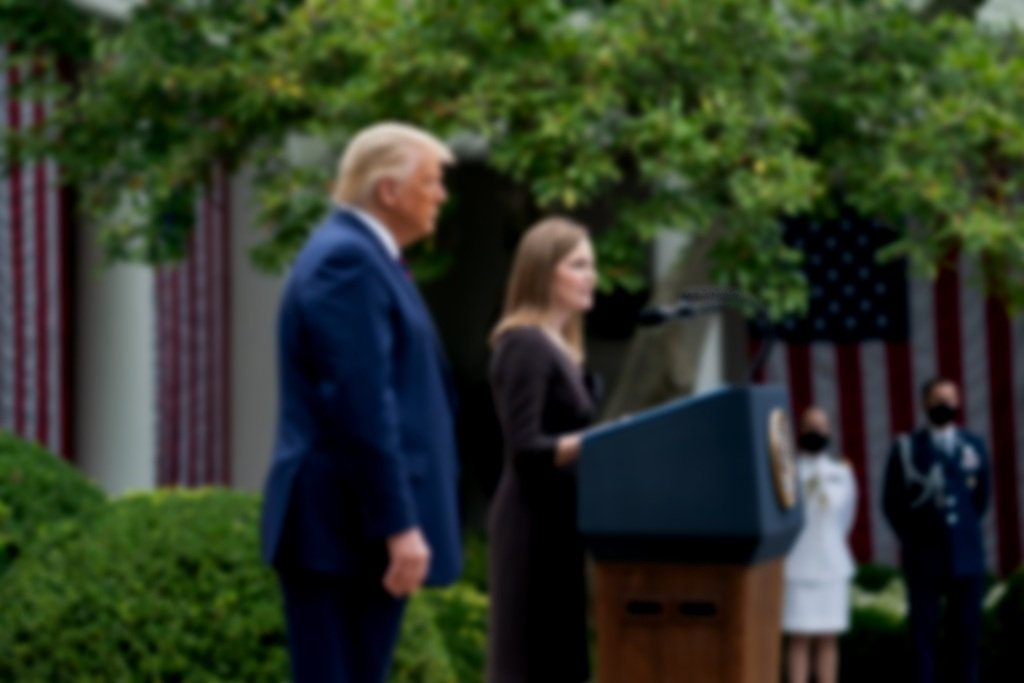
Reactions to Amy Coney Barrett's Originalist Philosophy on the New Supreme Court of the United States
Hannah Lee
May 2022
4 minute read
With the nomination of Supreme Court Justice Amy Coney Barret, originalist judicial philosophy has gained another adherent in the highest court of the United States. This focus on late 17th century context and interpretation has wide reaching implications on how future cases are decided, and how past precedents are reevaluated and applied.
Amidst the chaos that 2020 has already brought, the U.S. was shocked again when venerated Supreme Court Justice Ruth Bader Ginsburg passed away in September. For decades, Ginsburg was seen as a feminist and liberal icon in the Supreme Court, a woman who attracted growing attention in a time in which the Court began to lean to the right. With her passing, the Appointments Clause inevitably returned to the spotlight.1 This constitutional clause states that the U.S. President has the power to nominate the lifetime appointment of the next justice with the Senate’s confirmation. Although 2020 is an election year, the current president has the freedom to select a nominee for the vacant SCOTUS seat, as long as it is before the next president is officially appointed. Wasting little time, President Donald Trump quickly appointed Judge Amy Coney Barrett (of the 7th Circuit Court of Appeals) to undergo a hearing for Senate confirmation, and with a Republican Senate majority, she was narrowly confirmed in a 52-48 vote on October 26th, a week before the presidential election.2
One of the most notable aspects of Barrett’s nomination was her adherence to originalism, in line with that of her mentor, former Supreme Court Justice Antonin Scalia. Barrett has stated that “the lessons I learned [from him] still resonate. His judicial philosophy is mine, too.”3 Thus Scalia’s originalist interpretation of the Constitution align with Barrett’s personal practice, much to the approval of Conservatives.
Originalism is the concept that the Constitution should be interpreted based on the original understanding of its text during the time of its adoption. This strict approach constrains the scope of the interpretation, despite societal attitudes changing. The literal interpretation of the Constitution would view that “the First Amendment means the same thing as when it was adopted in 1791 and the 14th Amendment means the same thing as when it was ratified in 1868.”4 Barrett has explicitly stated that justices should not rule strictly by stare decisis, or the idea that justices should not be bound by evolving Supreme Court precedents.5 Instead, she has argued that the judicial philosophy of originalism should guide judges in their decisions.
Under originalism, the Founding Fathers are the arbiters of interpreting modern legislation. During its ratification, Thomas Jefferson made the noteworthy assertion that “laws and institutions must go hand in hand with the progress of the human mind,” expressing his belief in ruling with evolving societies in mind.6 In October 2020, U.S. Senator Angus King Jr. reemphasized this point, arguing that “the Constitution should be the sturdy vessel of our ideals and aspirations, not a derelict sailing ship locked in the ice of a world far from our own.”7 His metaphor lines up with the majority of other critics of originalism, who argue that the Constitution’s words should be fluid with the changing times.
Critics have written extensively on their worries on the dangers of Barrett’s legal philosophy. Numerous Americans oppose an originalist justice, arguing that the literal interpretation of the Constitution could “lead to terrible results” and that “following originalism would mean that Brown v. The Board of Education was wrongly decided in declaring laws requiring segregation of schools unconstitutional.”8 Interestingly enough, Barrett has stated that she believes Brown v. Board (the matter of segregation) is a super-precedent, and that her personal adoption of black children has also led her to take issues of race and racially charged police brutality very seriously. The issue with this, however, is that it was only the turning away from originalism that has allowed America to break free from what was once normalized segregation. Barrett and her originalist beliefs therefore remain unfavorable with the left, who point out that change is required for equality, and that such changes may also conflict with the originalist approach to the Constitution.
Ultimately, Barrett’s lifetime nomination solidifies the rightwards trend of the SCOTUS, which makes originalism — a judicial philosophy widely supported and criticized — a doctrine that will be relevant for the foreseeable future. This doctrine, along with the Conservative majority of the new SCOTUS, will be highly influential both in determining future decisions, and reevaluating the role of SCOTUS precedents in the context of original interpretation. The rights of Americans and attitudes towards certain issues have certainly changed over time, and the way those are reflected may change with Barrett’s confirmation. With a more conservative Court this country has seen, significant decisions are bound to be impacted by this new doctrine — and only time will tell if its impact validate the worries or the excitement that the American people hold for its future.
_____________
1 U.S. Const. art II, §2, cl. 2. 2 Veronica Rocha, “Amy Coney Barrett's Senate confirmation vote,” CNN (27 October 2020). 3 Adam Liptak, “Barrett’s Record: A Conservative Who Would Push the Supreme Court to the Right,” The New York Times (12 October 2020). 4 Erwin Chermerinsky, “The Philosophy That Makes Amy Coney Barrett So Dangerous,” The New York Times (21 October 2020). 5 Ibid. 6 Angus King Jr. and Heather Cox Richardson, “Amy Coney Barrett’s Judicial Philosophy Doesn’t Hold Up to Scrutiny,” The Atlantic (25 October 2020). 7 Ibid8 Chermerinsky, supra note 4. 
